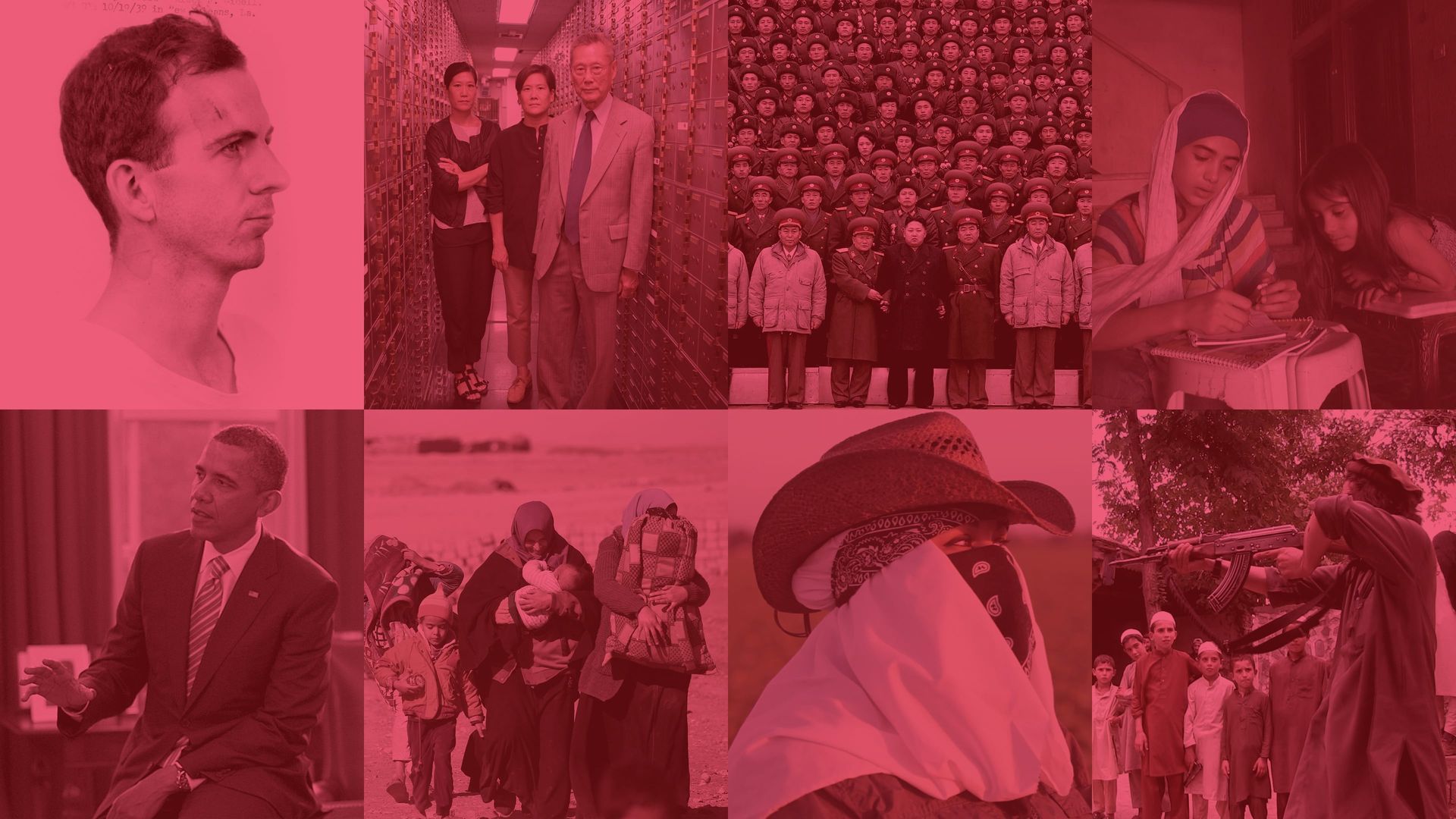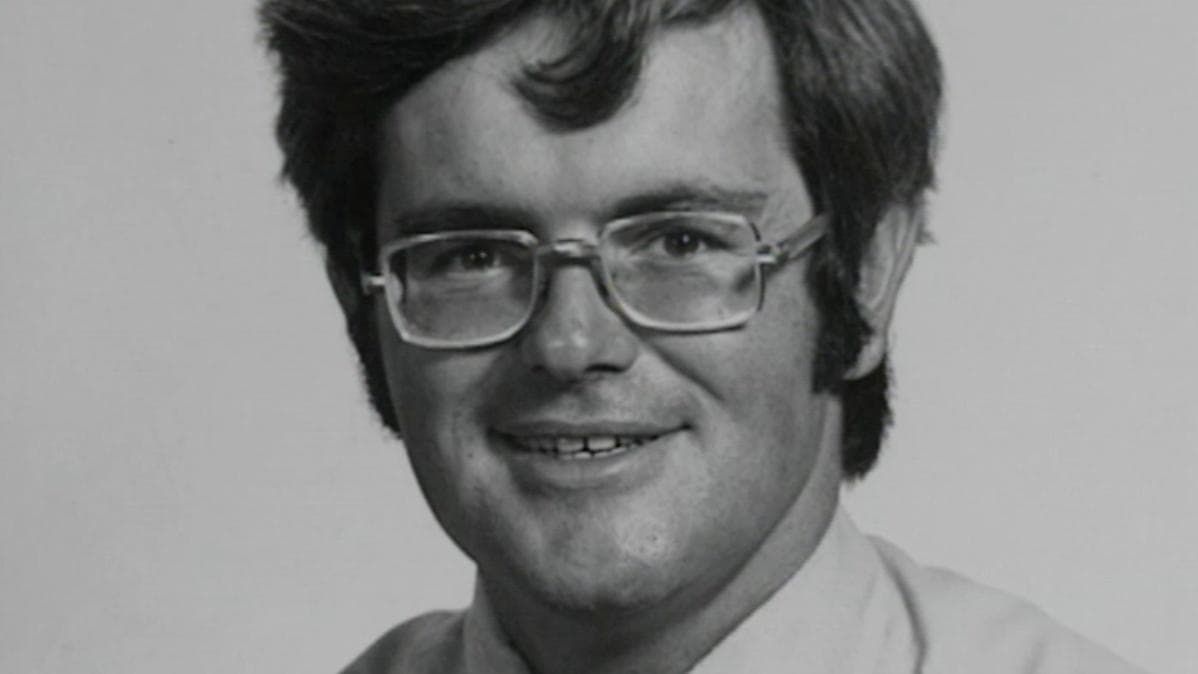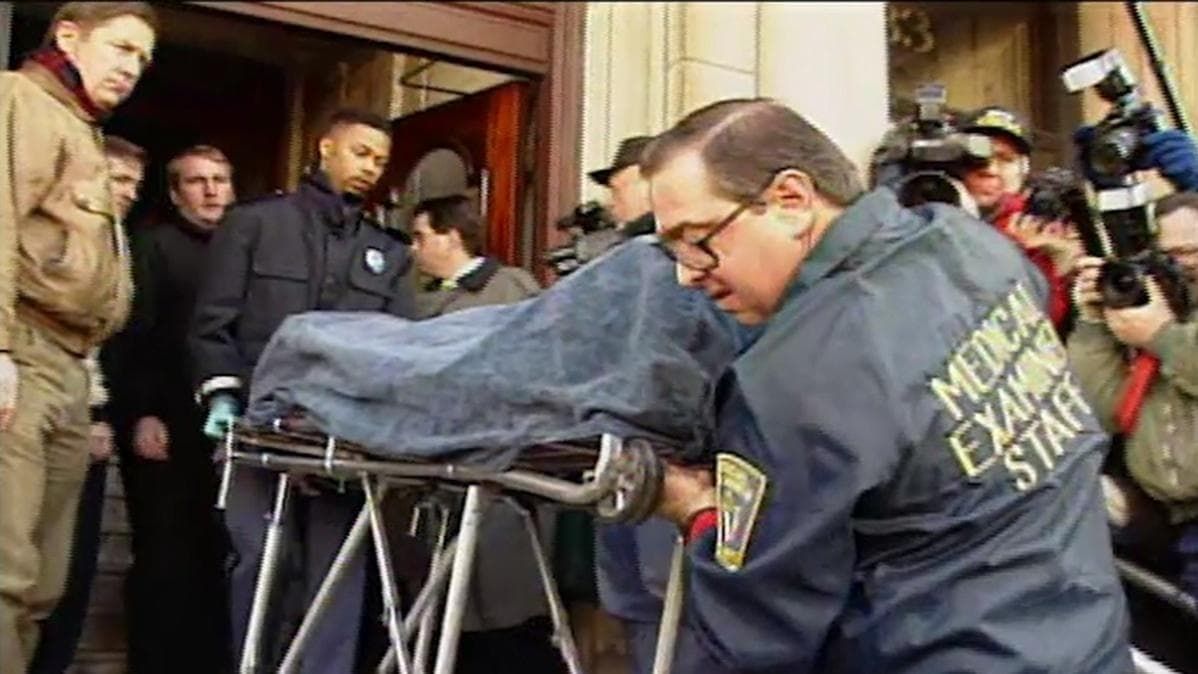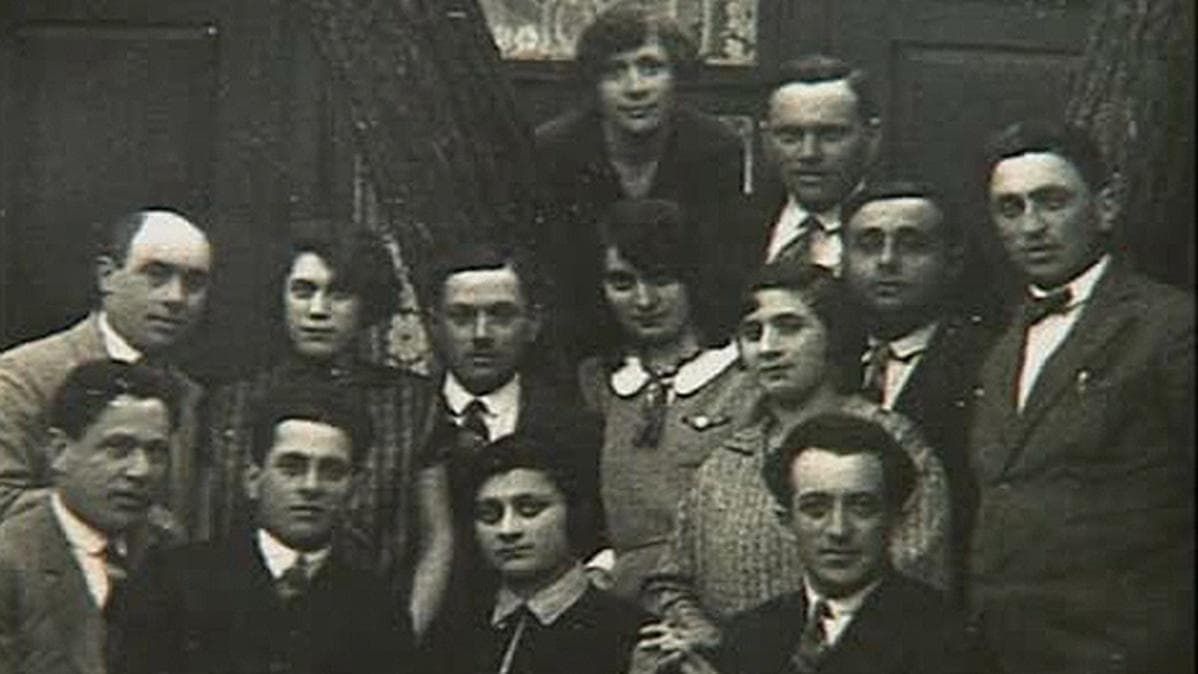

Frontline
Season 14
TV-MA
Since it began in 1983, Frontline has been airing public-affairs documentaries that explore a wide scope of the complex human experience. Frontline's goal is to extend the impact of the documentary beyond its initial broadcast by serving as a catalyst for change.
Where to Watch Season 14
18 Episodes
- Waco: the Inside StoryE1
Waco: the Inside StoryFRONTLINE investigates the April 1993 FBI siege of the Branch Davidian compound at Waco, Texas. With access to secret government documents, audio and videotapes, correspondent Peter Boyer of "The New Yorker" probes the untold story of the fierce political infighting inside the FBI's Waco command center and in the corridors of power at the Justice Department in Washington. - High Stakes in CyberspaceE3
High Stakes in CyberspaceFRONTLINE boldly goes where no one has gone before--tracking the new land rush to stake claims in cyberspace and asking hard questions about the optimistic predictions for a cyber-revolution. Correspondent Robert Krulwich reports on the effects these changes will have on the individual and how they will alter society. - Who's Afraid of Rupert Murdoch?E4
Who's Afraid of Rupert Murdoch?In the last forty years, Rupert Murdoch has gone from publisher of a marginal newspaper in Adelaide, Australia, to chairman of one of the world's largest and wealthiest media empires. His business acumen combined with a gambling spirit has made him an enormously successful player in the communications industry. FRONTLINE correspondent Ken Auletta probes Murdoch's drive to establish the first global telecommunications network and examines how Murdoch's success has been dogged by controversy over journalistic standards and the use of political influence. - Natasha and the WolfE5
Natasha and the WolfFRONTLINE takes a riveting and intimate look at a notorious murder case--the story of Maduev, a cunning Russian gangster and killer known as 'The Wolf.' Maduev charmed and seduced all who crossed his path, including his state prosecutor, Natasha Voronstova, who smuggled him a gun to make his escape from prison. With exclusive access to the central characters, the trial, and to secret KGB tapes, this film reveals the heart of a killer's chilling story that has mesmerized Russia. - Living on the EdgeE6
Living on the EdgeBill Moyers tells the story of several hardworking Milwaukee families struggling with low-paying jobs after previous employers downsized their operations. Filmed over a period of five years, these families were first featured in Moyers's 1992 documentary 'Minimum Wages: The New Economy.' FRONTLINE chronicles the families' emotional and financial strains, their search for better jobs and job retraining, and looks at Milwaukee's efforts to adapt to an ever-shrinking industrial sector. - The Gulf War
 E7
E7The Gulf WarMarking the fifth anniversary of the war with Iraq, FRONTLINE investigates what really happened during the invasion of Kuwait, the months of diplomatic maneuvering, the air war and ground assault, and the post-war rebellion inside Iraq. The two-hour episodes are built around dozens of interviews with key political and military leaders in the U.S., its allies, and Iraq, as well as soldiers on both sides of the front line. Interviews include General Norman Schwarzkopf, General Colin Powell, former Secretary of State James Baker, former Secretary of Defense Richard Cheney, Britain's Margaret Thatcher, Mikhail Gorbachev, Hosni Mubarak of Egypt, Jordan's King Hussein, and Israeli Premier Yitzahk Shamir. - The Long March of Newt Gingrich
 E8
E8The Long March of Newt GingrichIn this investigative biography of the outspoken and controversial speaker, which first aired in 1996, correspondent Peter J. Boyer takes an inside look at how Gingrich led the GOP to become the majority party and examines the childhood, people and events that shaped his personality and political career. - So You Want to Buy a President?E9
So You Want to Buy a President?FRONTLINE investigates the expected $500 million flowing into the 1996 presidential campaign. Correspondent Robert Krulwich scrutinizes the generosity of prominent campaign donors whose interests range from bananas to computer chips and reveals what they get for their money. - Breast Implants on TrialE11
Breast Implants on TrialMore than 400,000 women are part of a proposed global settlement against U.S. breast-implant manufacturers in the largest lawsuit in history. Many claim they have contracted a wide range of silicone-related diseases, but recent medical studies conducted by the nation's premier researchers have failed to find any evidence that silicone breast implants are dangerous. As Congress actively examines the powers of the FDA and the possibilities of tort reform, FRONTLINE looks at the enormous stakes involved in the clash between biomedical science and the nation's most powerful litigators. - Smoke in the EyeE12
Smoke in the EyeFRONTLINE investigates the war between network news and the tobacco industry in the wake of the $10 billion libel suit against ABC and the controversial decision by CBS not to allow 60 MINUTES to air an explosive interview with a tobacco company whistle-blower. As media companies increasingly come under the control of large corporations, will their newsrooms continue to aggressively report on corporate America? - Angel on Death RowE13
Angel on Death RowFRONTLINE takes on the death penalty debate with a personal profile of the woman behind the highly acclaimed motion picture Dead Man Walking, Sister Helen Prejean. With her 1993 book adapted for Hollywood starring Susan Sarandon, the nun from Baton Rouge, Louisiana, became the nation's leading voice against the death penalty. FRONTLINE follows Prejean's crusade against the death penalty while serving as spiritual advisor to five death row inmates. The program centers on the grisly 1980 Louisiana murder of Faith Hathaway, a crime for which Robert Lee Willie was executed four years later. The film features the first, exclusive interview with Debbie Morris, a young woman who was kidnapped and brutally raped by Willie just three days before he raped and killed Hathaway. But Prejean's opposition to the death penalty has prompted criticism from death penalty advocates, including Hathaway's mother and step-father who believe the nun's compassion for condemned criminals, rather than their victims, is misguided. - The Pilgrimage of Jesse JacksonE15
The Pilgrimage of Jesse JacksonThrough five decades, Jesse Jackson has been trying to realize the promise of his own potential he first embraced as a boy in segregated Greenville, South Carolina. His life has been a headlong rush toward that end, fueled by a mix of personal aggrievement, ambition, his own vision of what America should be, and his quixotic but enduring belief that he might be able to change the country and the world. Drawn from journalist Marshall Frady's biography, Pilgrimage, the program is not only a rare in-depth look at the man, but also offers a portrait of race and politics in post-war America. - The Kevorkian VerdictE16
The Kevorkian VerdictAs Dr. Jack Kevorkian faces his third criminal trial for assisting in the suicide of his desperate patients, FRONTLINE examines the improbable saga of 'Dr. Death' and assesses how quickly the Michigan pathologist seized center stage in the intricate and emotional debate over physician-assisted suicide and what role he played in changing how America thinks about the end of life. - Does America Still Work?E17
Does America Still Work?At the height of the Rust Belt primaries, FRONTLINE goes to Wisconsin where presidential candidates tap the deep-seated anxiety and insecurity that fuels tensions between American businesses and their employees. Correspondent Jeff Madrick looks behind the heated political rhetoric to see how companies, workers, and civic leaders are wrestling with global competition and the end of an era of industrial affluence. In a volatile economic climate, what do corporations owe their employees and their communities? - The Gate of Heavenly Peace
 E18
E18The Gate of Heavenly PeaceIn the spring of 1989, students and workers occupied Beijing's Tiananmen Square and the world watched as China struggled with this wrenching upheaval in the name of democracy. 'The Gate of Heavenly Peace' documents the history of China's Protest Movement, providing context to the history and political attitudes which shaped the development of the movement, and reveals how moderates among student protesters and within the government were silenced by extremist factions. In its first television broadcast, the film reflects five years of meticulous research and interviews to construct the most complete and accurate account to date of the complex political process that eventually led to the Beijing Massacre on June 4.



